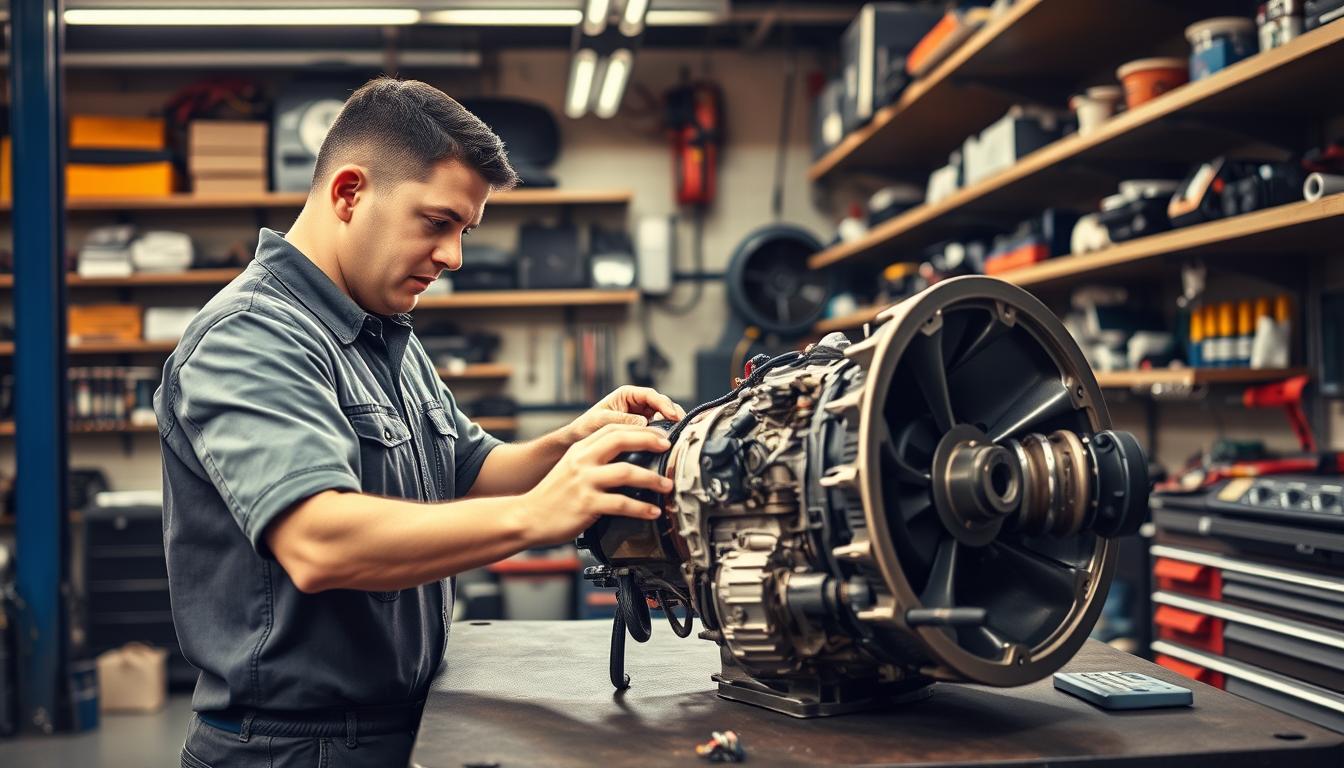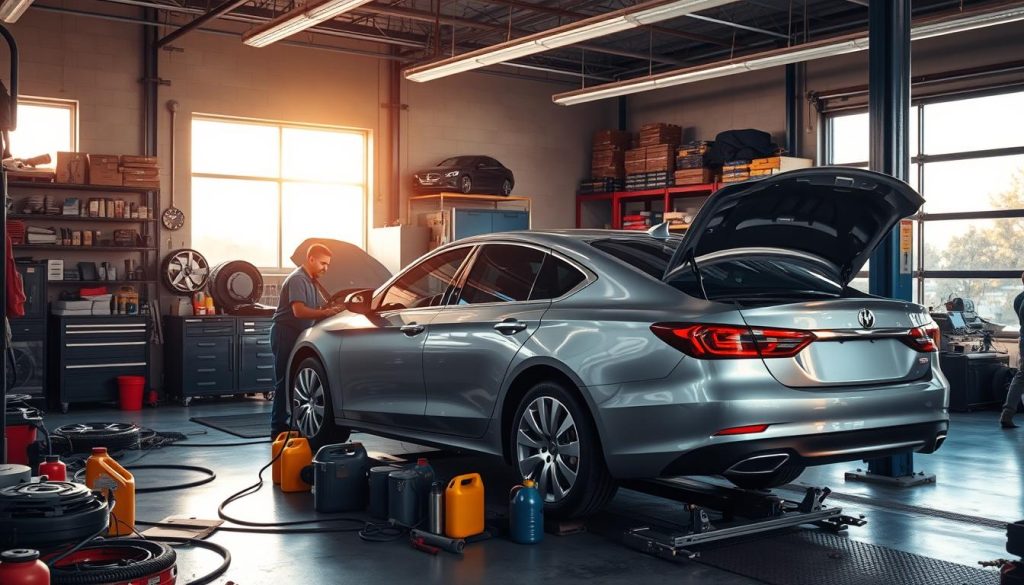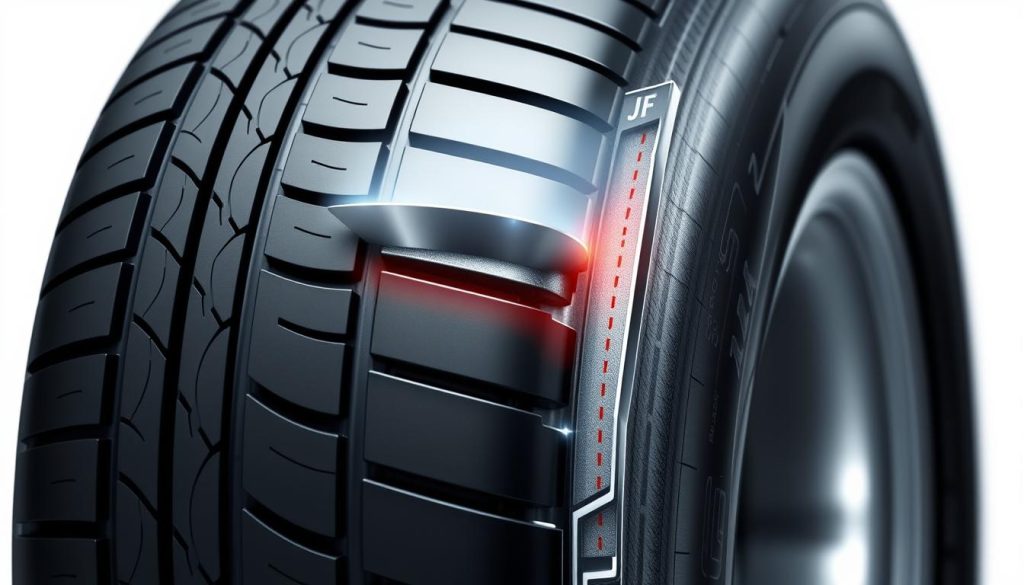We often ignore our transmissions until they fail. Spotting problems early can save us a lot of money and time. Signs like slipping gears and strange noises mean something’s wrong.
Regular checks and quick fixes can stop big problems. This keeps our cars running well. We’ll look at how to spot these issues and why they matter.
Key Takeaways
- Spotting early signs of transmission issues can save us from expensive repairs.
- Slipping gears and unusual sounds are common indicators of transmission problems.
- Regular checking of transmission fluid is essential for vehicle health.
- Routine maintenance can significantly extend the life of our transmission.
- Ignoring warning signs could lead to severe damage and safety risks.
- Consulting a professional for early diagnosis is key for optimal performance.
Common Signs of Transmission Issues
Spotting signs of transmission trouble early can save us money. Knowing these signs helps us fix problems before they get worse. Here are some important signs to watch for to keep your car’s transmission healthy.
Slipping Gears
Slipping gears is a big problem while driving. It might mean the fluid is low or the bands are worn. If the engine revs a lot during shifts, it’s a sign of trouble.
If your car feels weak when you press the gas, check it fast.
Unusual Sounds
Listen for strange noises from the transmission. Grinding, humming, or clunking sounds mean something’s wrong. These sounds should not be ignored, as they can lead to bigger problems.
Delayed Engagement
When shifting gears takes too long, it’s a worry. This could mean the fluid is low or there’s a mechanical issue. Getting it checked quickly is key to avoid bigger problems.
Importance of Early Diagnosis
Spotting transmission problems early is key for our safety and money. Catching issues early helps avoid big damage costs. This way, we can avoid expensive fixes that could cost thousands.
Preventing Further Damage
Spotting transmission problems early can save up to 70% on repairs. Cars that get regular checks can last 30% longer. Ignoring signs like slipping gears can cost over $2,000.
About 20% of car breakdowns are due to transmission failures. This shows why we need to act fast.
Cost-Effective Repairs
Regular checks can make repairs cheaper. For example, a transmission fluid change costs about $150. This is much less than the $3,000 to $5,000 for a new transmission.
Not fixing transmission problems early can cut fuel efficiency by 15%. This shows why keeping up with maintenance is important.
Transmission Fluid: The Lifeblood of Your Transmission
We often forget how important transmission fluid is. It keeps our car’s transmission running smoothly. It also helps cool and move parts around.
Checking the fluid level is key. It stops problems like overheating or not shifting right. These issues can cost a lot to fix.
Checking Fluid Levels
It’s important to keep the fluid at the right level. If you drive a manual, you might need to change the fluid every 30,000 to 60,000 miles. Automatics usually need it every 60,000 to 100,000 miles.
Driving in heavy traffic means you should check the fluid more often. Clean fluid is bright red and clear. This means it’s working well.
Signs of Contaminated Fluid
Dirty fluid shows signs like a dark color. It might turn brown or black. This means it’s time for a new one.
Other signs include hard shifting, strange noises, and a burnt smell. Metal shavings in the fluid are a big warning. These signs can help your transmission last longer, up to 200,000 miles.
Types of Transmission Repairs
Understanding the types of transmission repairs helps us make better choices for our cars. We have two main types: manual and automatic. Each needs special care and can have different repair needs.
Manual vs. Automatic
Manual repairs need less work than automatic ones. Automatics need fluid changes every 60,000 to 100,000 miles. Manuals need them every 30,000 to 60,000 miles.
Manuals can last over 250,000 miles with good care. Automatics last between 100,000 to 200,000 miles.
Major Repairs vs. Minor Repairs
Repairs can be big or small. Big repairs need a lot of work and are for serious problems. Small repairs are for things like seal changes or fluid updates.
Rebuilds and Replacements
For big problems, we might choose to rebuild or replace the transmission. Rebuilds can last a long time and save money. Replacements are for really bad damage.
Our choice depends on what the experts say and the cost of each repair.
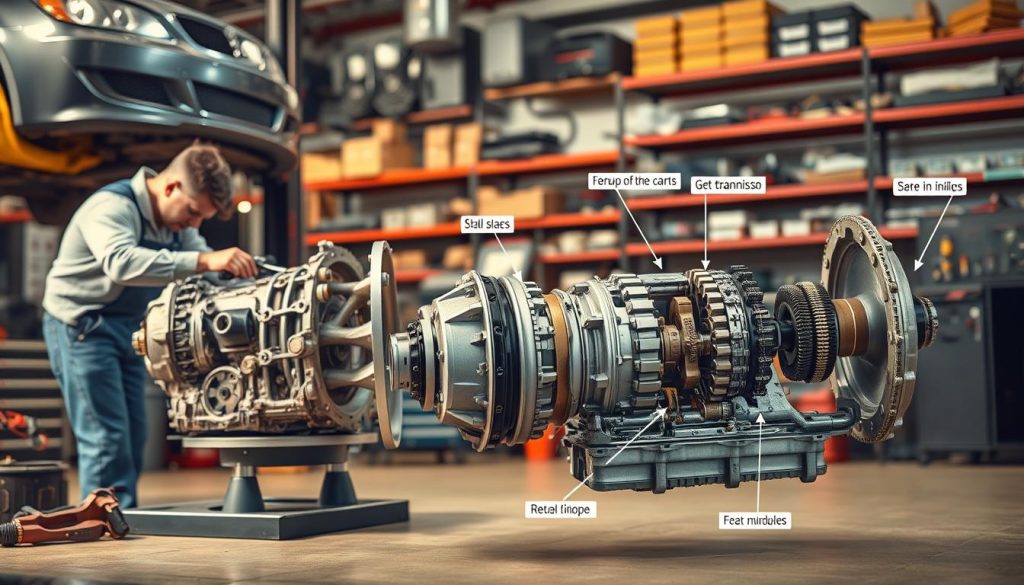
Finding a Reliable Repair Shop in Texas
Finding a good transmission repair shop in Texas is key for our cars. It helps keep our vehicles running well. We should look for shops that are known for good repairs.
Researching Local Options
When we look for shops, we should focus on those with a good name. Shops with ASE-certified techs are a good sign. For example, Lamb’s Tire & Automotive in Austin has over 35 years of experience.
Local shops often cost less than dealerships. They offer great service at a lower price.
Reading Reviews and Ratings
Reading what others say is very important. Reviews tell us about the shop’s quality and reliability. Look for praise on their ability to fix problems well.
Good words about the staff and management are also important. They show the shop cares about customers.
Asking for Recommendations
Talking to friends and family can also help. They might know good shops. Their advice can help us find the best place in Texas.
Getting tips from people we trust makes choosing easier. It helps us find a shop that will do a great job.
Cost Factors in Transmission Repair
Knowing what affects transmission repair costs is key. Things like the car type, damage level, and labor costs matter a lot. Each one affects how much we might pay for repairs.
Type of Vehicle
The car we drive affects repair costs. Automatics are more complex and cost more than manuals. New cars have parts that are easy to find but are pricier. Older cars might be harder to find parts for, making repairs more expensive.
Cars made outside the U.S. also cost more to repair. This is because of higher part prices.
Extent of Damage
How bad the transmission damage is also matters. Small fixes cost $300 to $1,200. But big repairs can cost much more.
For example, fixing a manual transmission can cost $2,800 to $3,800. Replacing an automatic can cost $4,000 to $8,000. Where you live also affects prices.
Labor Costs
Labor costs are a big part of repair costs. Labor can cost $500 to $1,200, needing 4 to 12 hours. The car’s complexity and age affect these costs.
If we need quick service, costs go up. This is because of extra labor and fast part shipping. Knowing labor costs helps us plan for repairs better.
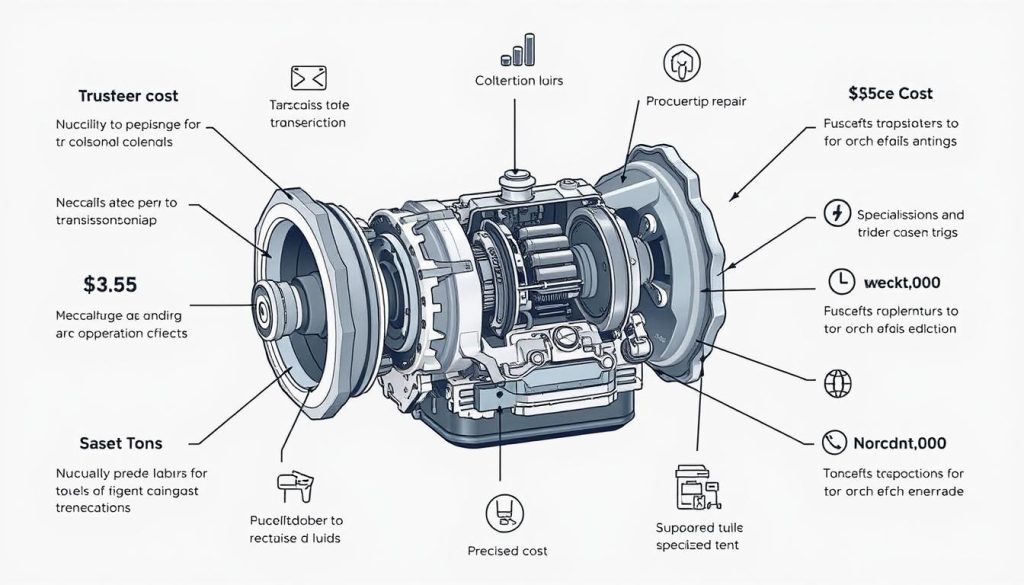
DIY Checks Before Taking to a Mechanic
Before we go to a mechanic, we can do some easy DIY checks. Knowing how to take care of our car saves time and money. By checking our car often, we can find small problems before they get big.
Routine Maintenance Tips
Checking fluid levels is key to keeping our car running well. Here are some quick tips for routine care:
- Check the transmission fluid levels to make sure they’re right.
- Look for leaks under the car. This can mean there’s a problem.
- Check belts and hoses for wear. This helps them work right.
- Watch for dashboard lights. They can warn us of issues.
- Keep a log of when you change fluids and check the car. This helps you stay on top of things.
Simple Troubleshooting Steps
Doing simple checks helps us understand our car better. We can notice things that might not be right:
- Listen for strange sounds while driving. They might mean something’s wrong with the transmission.
- Smell for anything odd. This could mean fluid is leaking or the car is too hot.
- See how the car shifts gears. If it’s rough, it might need help.
- Look at the transmission for cracks or damage. This is important.
By doing these DIY checks and following routine care, we can find problems early. These tips help us make better choices for our car. Taking care of our car helps it last longer and run better.
Conclusion: Don’t Ignore Transmission Problems
It’s very important to fix transmission problems right away. Even small signs like slipping gears or slow shifting can mean big trouble. If we ignore these signs, it could lead to expensive fixes and safety risks.
Taking Action
Seeing signs like fluid leaks or strange noises means we should call a mechanic fast. Getting help early can avoid big and costly repairs. Parts like the torque converter and transmission bands are key to our car’s performance. Quick action can stop more damage and make repairs work better.
Contacting a Professional
It’s smart to get help from a pro like Heaven Automotive for transmission issues. Their skilled techs can find and fix problems quickly. Fixing problems early keeps our car safe and our family safe too.

